Return Print (Jacob & Esau) by Lisle Gwynn Garrity
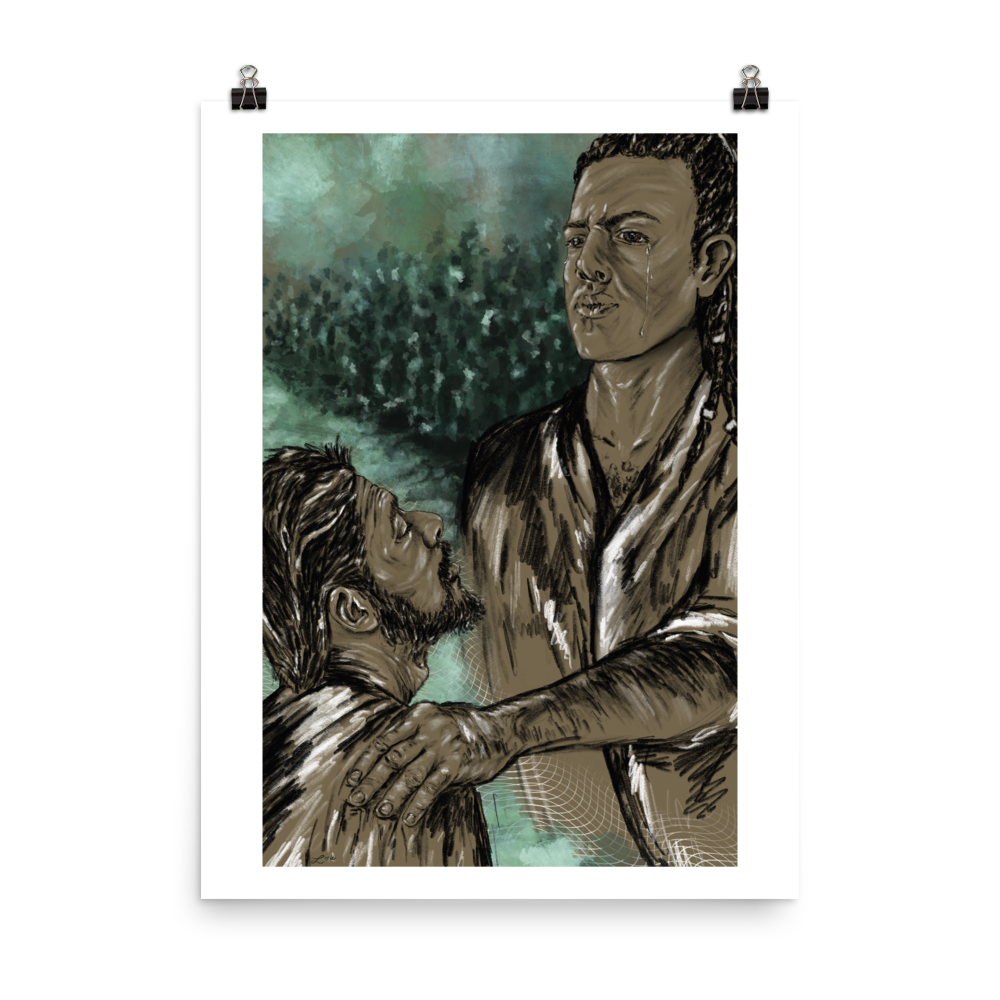
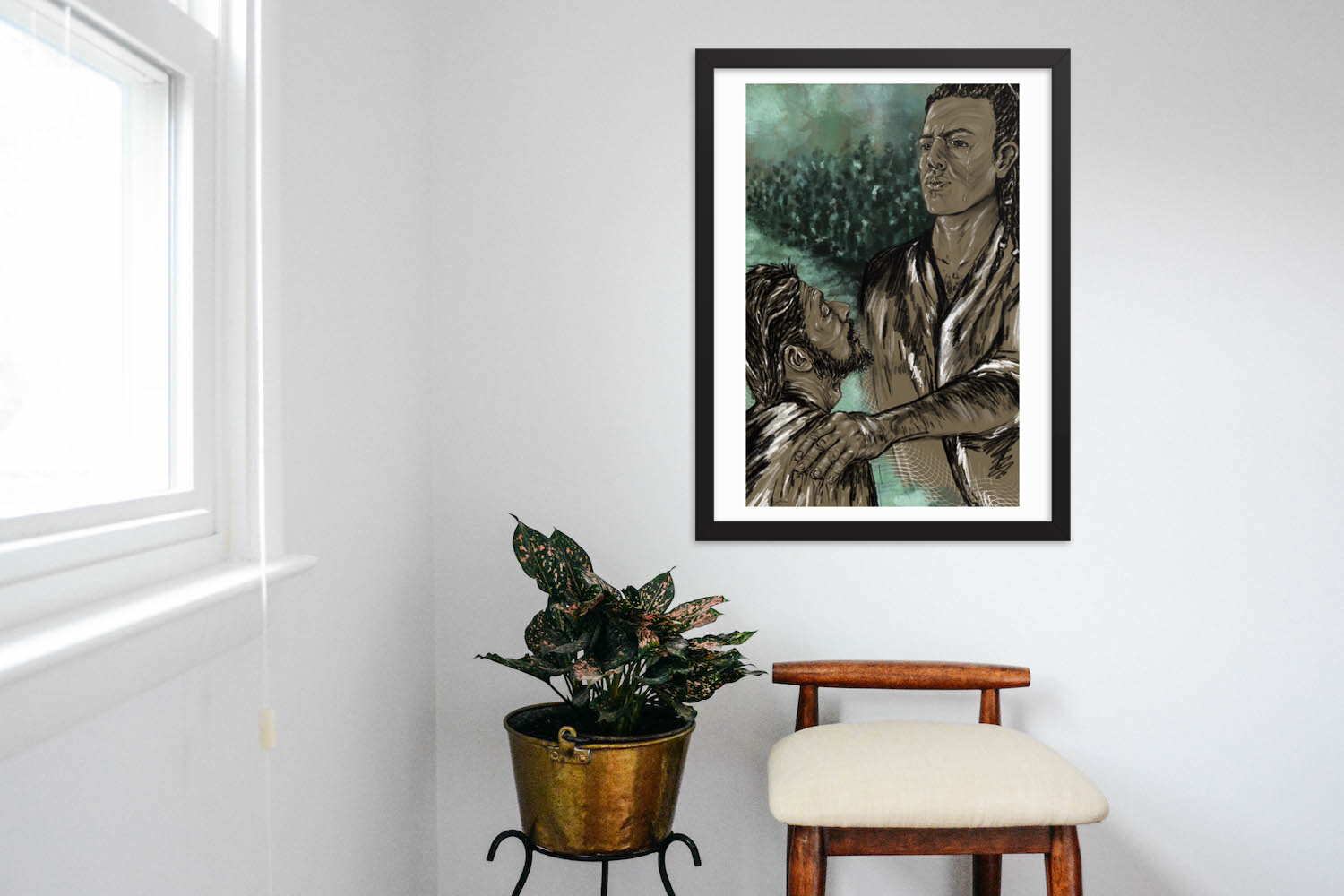
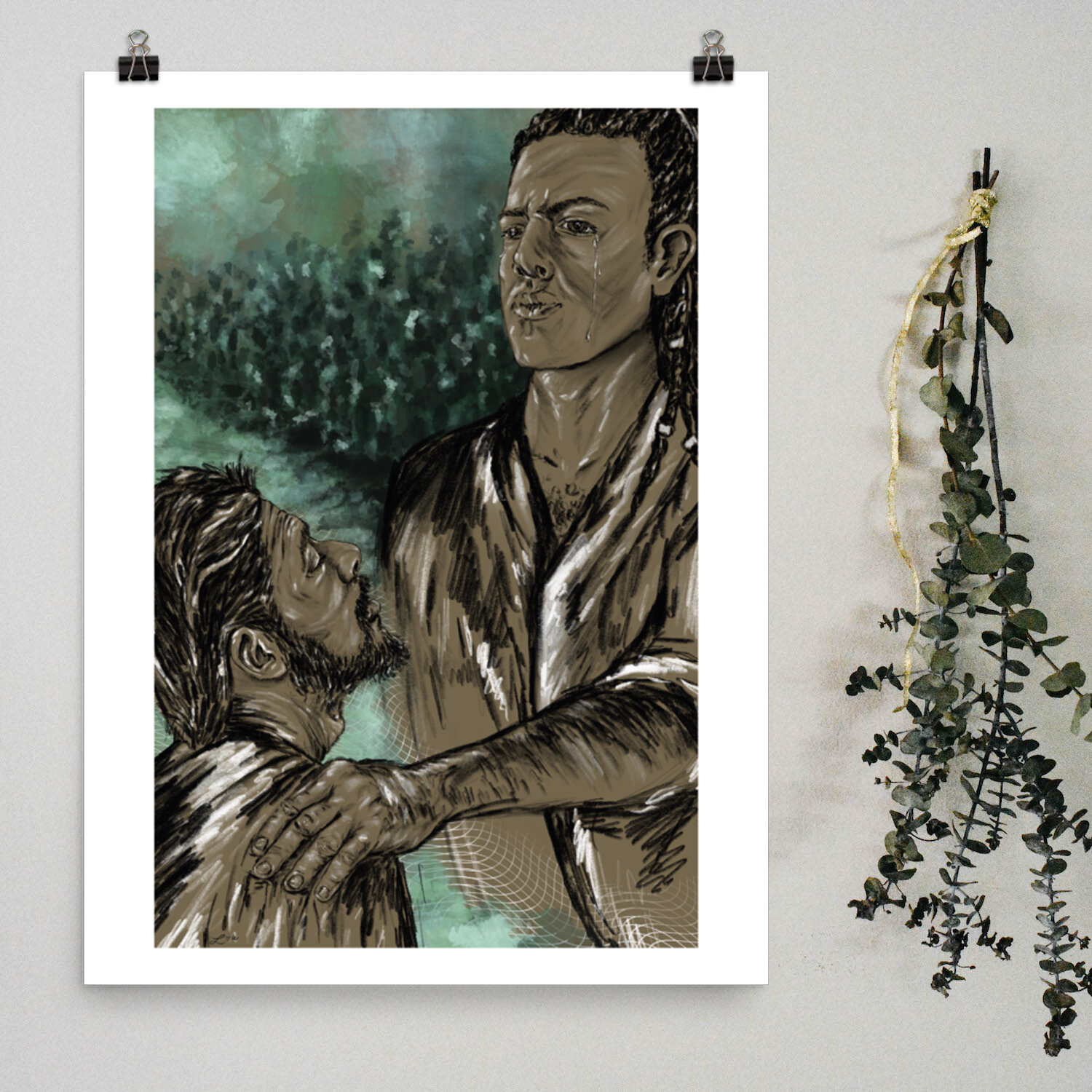
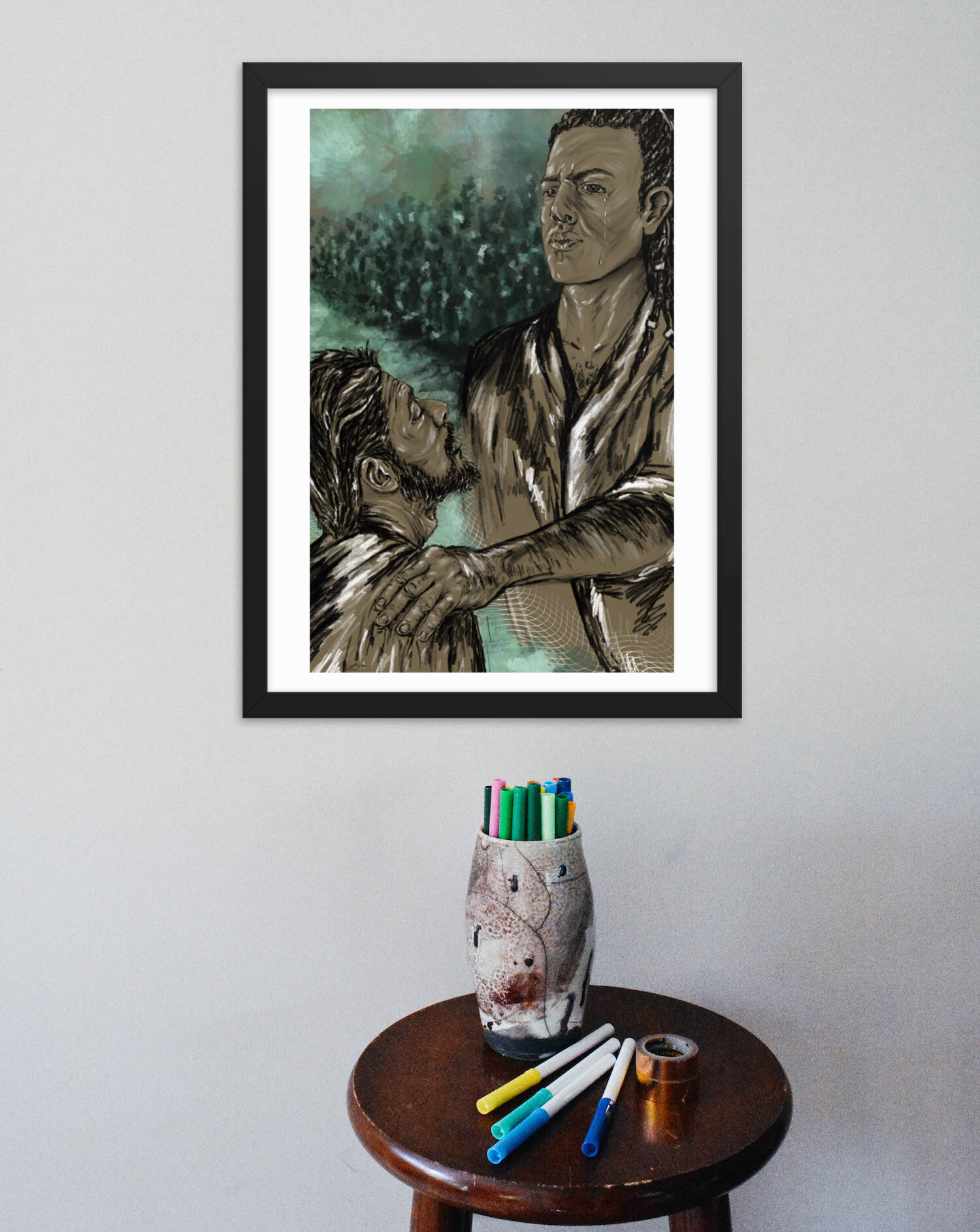
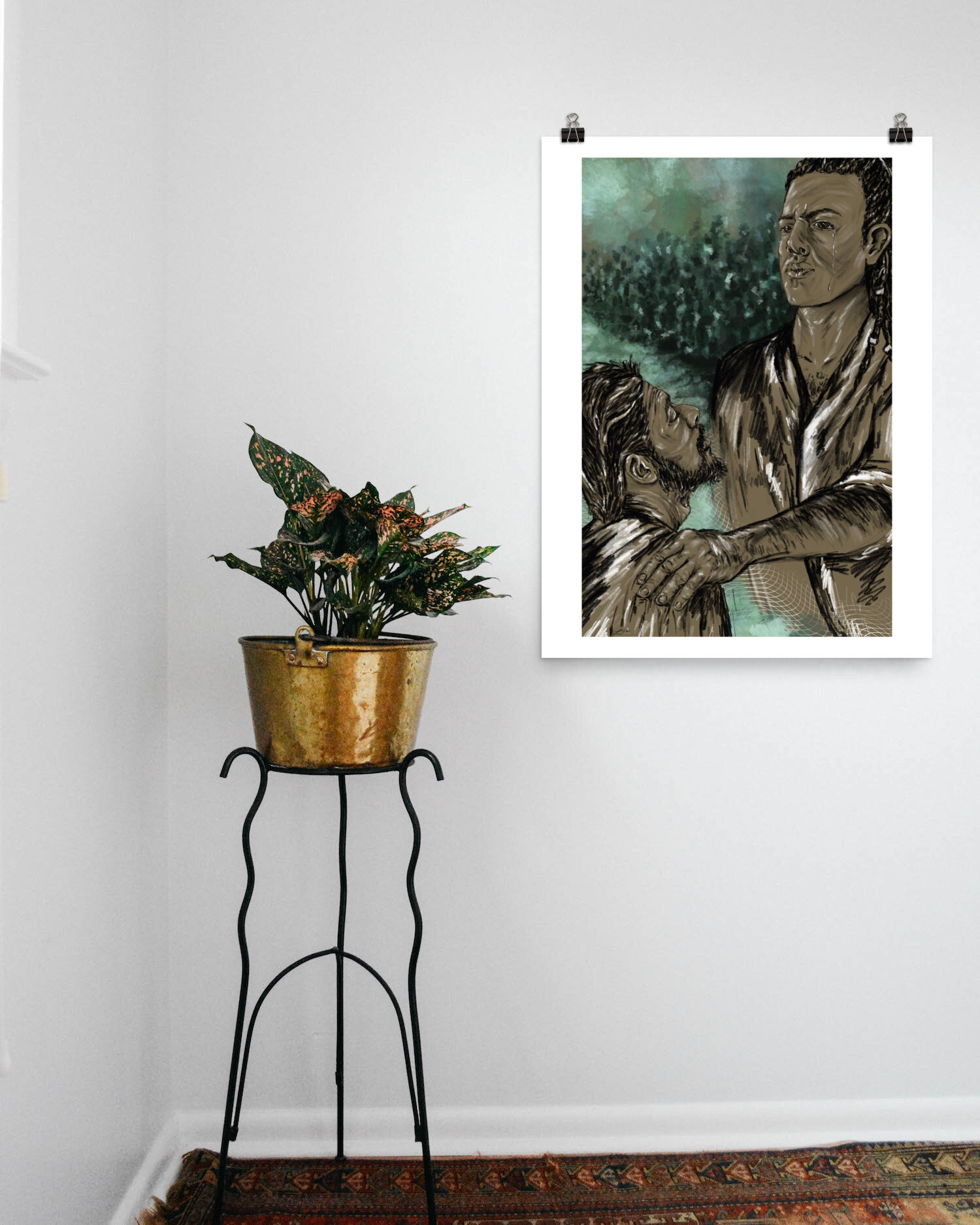
Return Print (Jacob & Esau) by Lisle Gwynn Garrity
Return
By Lisle Gwynn Garrity
Inspired by Genesis 33:1-17 (Esau forgives Jacob)
Museum-quality poster made on thick, durable, matte paper. Unframed artwork will arrive rolled up in a protective tube.
Framing option available.
Print Details:
Museum-quality posters made on thick, durable, matte paper.
Paper is archival and acid-free.
Unframed prints arrive rolled up in a protective tube.
Frame Details:
Alder, Semi-hardwood frame
Black in color
.75” thick
Acrylite front protector
Lightweight
Hanging hardware included
Made in the USA
From the Artist:
“Jacob and Esau shared a womb but soon grew to be enemies. Torn apart first by Jacob’s hunger for status (he buys Esau’s birthright) and then by Jacob’s deceit (he steals Esau’s inheritance), their relationship is deeply fractured by money.
They become estranged—living in different lands with different families, cultures, and customs. Jacob steers clear of Esau, fearing Esau will kill him, until the time comes to leave his father-in-law, Laban, and return home to Canaan. But to do this, Jacob must pass through Esau’s territory in Mount Seir. He must come face-to-face with the brother he has wronged.
In this image, I’ve imagined the moment they meet—Esau winged with an army of men, and Jacob bowing, offering up half of his wealth and household. Esau’s men hover behind him, ready for the signal to charge. Instead, they watch Esau run to Jacob, embracing him with tears and warmth. Somehow, over the years, Esau’s rage has softened. He has found a way to make peace with the past. Esau looks beyond Jacob at his children and maids—at what Jacob offers to him as reparation for what he stole. “I have enough, my brother,” Esau replies. Esau has learned what Jacob struggled to know from the start—that constant striving for more leads only to suffering.
In this encounter, Jacob finally bows before Esau, owning up to his wrongs and giving up his power. And yet, after this stunning moment of reconnection and forgiveness, Jacob journeys away from Esau to Succoth. They cannot continue side-by-side. Perhaps there are too many wounds, too much harm done.
Forgiveness does not cancel out pain. Restoration does not erase wounds. Restoration invites us to return what we have wrongfully taken from others, to return to God’s hopes for us. In restoration, we return to enough.”
—Lisle Gwynn Garrity










